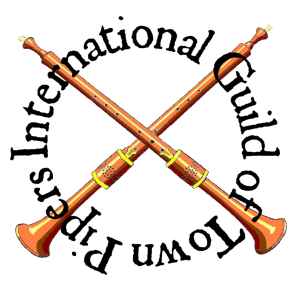Bradford Waits
Excerpt from “A Musical Pilgrimage in Yorkshire” by J. Sutcliffe Smith (1928).
BRADFORD (p. 72)
Belonging to this earlier period, there existed a curious band of musicians known as the Town Waits of Bradford. The oldest company was a town institution in 1822, and held a license to sing and perform, from the magistrates. What a picture this group must have presented! We read that three of them – Jim Fletcher, Billy Blazeby, and Jack Dodge – were blind, and tied to a pole. The fourth, named Sam, who had his sight, acted as their guide. We are told that the music produced by these four old fellows was not by any means great, perhaps not always presentable; but they always received a welcome at Christmas, and on great occasions. When a rival company sprang up, called the New Borough Waits, the happier days of the old Town Waits were at an end; for we read that there were ‘constant bickerings, jealousies, and retaliations, between the rival parties’. As most Bradfordians are aware, this picturesque feature of their city has long been numbered among its things of the past.
Click the following link to see a picture of the Bradford Waits in 1829: Bradford Blind Waits
BRADFORD
“Yorkshire Folklore Journal, vol. 1”, J. Horsfall Turner, 1890
From Alan Radford, 4th February 2020.
Bradford has made wonderful strides of progress in recent years. But much of this progress has been at the sacrifice of some old customs and institutions that were very dear to old Bradfordians. Several years have now passed away since the old Christmas Waits were last heard in the streets of the old town, and when a few more years have rolled away the fact that they ever existed at all will be spoken of as a thing only of the olden time.
The oldest Company of Waits in Bradford was formed about ten years before the incorporation of the Borough, or shortly before the passing of th e Reform Bill. In th e year 1829, Mr. Ellis Cunliffe Lister (father of the present Mr. S. C. Lister), and Mr.Matthew Thompson, who sat as magistrates at the Spotted Horse, Manningham Lane, and at the Sun Inn, Bradford, gave permission to one Samuel Smith, otherwise Blind Sam, “to form a company of Waits for the town, which did not then number more than inhabitants”. Sam was not long in finding three other associates, all blind, who were willing to join his company, and another (who was not blind) to act as guide. The names of Sam’s blind companions were, Jim Fletcher, Billy Blazeby, and Jack Dodge.
Furnished with musical instruments, and all tied to a pole, except the guide, they began their nightly perambulations, making music that could hardly be called sweet, but which, linked with the festive season of Christmas and other interesting associations, was always welcome, especially to the young who liked nothing better than to get out of bed and have one peep at the odd procession as it passed along the street.
But alas for the uncertainty of human plans and schemes! In 1862 a rival band of Waits, which had the presumption to call itself “The New Borough Waits, sprung into existence, so that instead of one band the town could now boast of two. This led to jealousies, bickerings and retaliations, and the walls of Bradford were placarded with bills’ headed ‘Caution, Notice, &c.’, all of which, says Mr. Abraham Holroyd, our informant, was very foolish, if the parties concerned had only considered that Bradford was then five times as large as it was thirty years previously (when Blind Sam first began the movement). If they had only agreed to divide the Borough and the yearly gifts between them, there was plenty of room for both bands, and two more if competition must come.
Whether it was that Bradford people did not care to patronise two sets of Waits, or that so old fashioned an institution could not adapt itself to the new streets and new modes of life that had come upon the town, we will not venture to say. Certain it is that the Bradford Waits , both the old set and the new, have ceased to exist, and will in course of time pass into the limbo of forgotten things.
W. SCRUTON.
